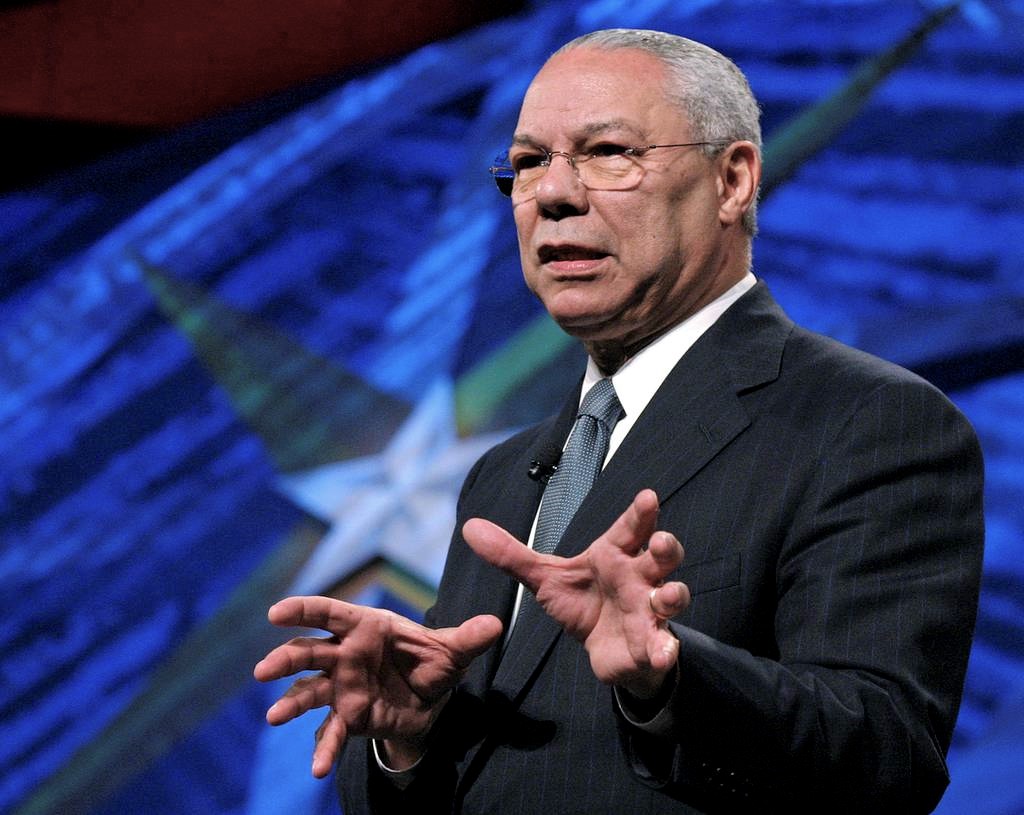
AP Photo/Jack Plunkett
Years ago, General Colin Powell was asked “How would you define the key characteristics of effective leadership that would allow you to be an advocate for good?
Powell didn’t hesitate, “Trust.”
“The longer I have been in public service, more people are asking about leadership over the years. Leadership? It ultimately comes down to creating conditions of trust within an organization. Good leaders are people who are trusted by followers. Leaders take organizations past the level that the science of management says is possible.
“One of my sergeants back in the infantry school of Fort Benning almost 50 years ago, which is where I learned everything about leadership, said to me one day: ‘Lieutenant! You’ll know you’re a good leader when people will follow you… if only out of curiosity.’
“I’ve never had a better definition. What he was saying, and I’ve seen it in my life since then, is they trust you. You have built up that trust.
“How do you do it?
“A clear mission and statement. Selfless service. People look to you and they trust you. You’re serving selflessly as the leader — not self-serving selflessly — and that you prepare the followers. You train them. You give them what they need to get the job done. Don’t give them a job if you’re not going to give them the resources. And you’re prepared to take the risks with them.
“So they would teach us at the infantry school: no matter how cold it is, lieutenant, you must never look cold. No matter how hungry you all are, lieutenant, you must never appear hungry. No matter how terrified you are, lieutenant, you must never look terrified. Because if you are scared, tired, hungry and cold . . . . they will be scared, tired, hungry and cold.
“I’ve gotten away with that many, many times in the course of my career by being scared to death, cold and want to sleep. But no! Let’s go. Let’s keep going. Let’s go around this corner, if only out of curiosity.
“They’ll follow you into the darkest night, down the deepest valley, and up the highest hill if they trust you. So, the essence of leadership is about doing all that the science of management says you can with resources, but taking that extra step and giving it that spark. That spark comes from getting people to trust you…
“So that they will follow you, if only out of curiosity.”
Teaching a class in Contemporary Ethical Issues at the New Hampshire Technical Institute several years ago, I learned the importance of trust in a simple response to a question I asked a student.
The class ran for five consecutive days from 8:30 am to 4:30 pm. There were no other classes on campus allowing students to focus solely on ethics. During that week, we would not only spend time in the classroom together but on breaks and lunch.
On day one, my partner in the class, Professor Steven Ambra, outlined the course to the students and described what was expected of them. The next segment consisted of my talk defining ethical values, principled reasoning, and offering examples of effective decision-making. For the next week, Steve and I would facilitate discussions with the students on the implications of decision-making using examples from the simple to the complex.
During a lunch break, one student asked if she could speak to me privately. At a separate table in the dining room, she explained a dilemma concerning her father and a boyfriend he did not approve of. While she respected her father, whenever a discussion of the boyfriend came up he would interrupt and reiterate his unwelcomed opinion.
“I care, very much about this boy,” she told me. “Is there any way I can talk to my father and explain my feelings without interruption?
I told her that she might try beginning the conversation by saying how much she loved and respected her father and then ask if he would be willing to listen without interruption as she explained her feelings. She listened to my suggestion and thought it could be helpful. The whole conversation lasted maybe 10 minutes. As we were leaving the table, I asked, “Why were you interested in my opinion?”
“I trust you,” she said.
At that moment, I realized two things: that trust must be earned, and that you have a responsibility to continue to demonstrate that trust in words and actions.
For three days, this young woman listened to what I was teaching, how I listened to others and facilitated conversations in the class. As a result, she trusted my opinion.
While I don’t consider myself a leader in the same sense as Powell, I do share his belief that trust is vital in all relationships.
“taking that extra step and giving it that spark. That spark comes from getting people to trust you…”
Comments










